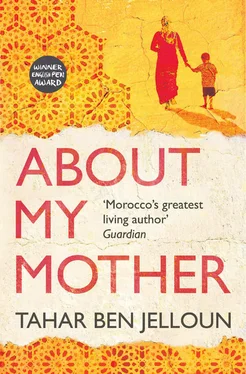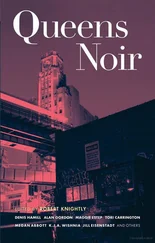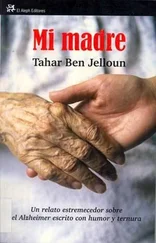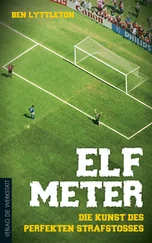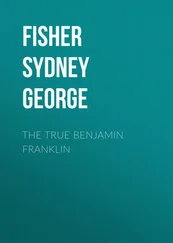I sit close to her and take her hand. She asks for her children. We’re all here, apart from Touria, who’s gone to Mecca.
Her doctor, whom she never fails to recognise, visits her every morning and evening. At the moment, I’m talking to her, telling her about my childhood: ‘You’re much thinner. Do you remember, when you were well, how beautiful you were, how alive? You’d chase after me to punish me for being naughty. Do you remember our house in Fez, the last house my father built?’
It was big and not very comfortable. In winter we’d freeze, we slept under heavy blankets, the floor was made of concrete. Father couldn’t afford to buy terracotta tiles, let alone marble — my aunt’s house was full of marble imported from Italy, and we thought it the height of luxury. When I was a boy, I found out there were poor people, a lot of poor people, and rich people, but my aunt’s husband was rich because he worked so hard. I adored him. He was a kind man, a reserved man. He always used to slip me some money. He’d smile and say I mustn’t tell my father — he’d have been furious — but I’d give it to my mother, who was pleased. One day she asked me to go with her to the medina, to the Souk D’hab, the gold market. She took out a handkerchief, she’d knotted some coins into it. She showed it to me and said: ‘This is your money. I’ve kept it, and now you’re going to buy me a present with your money.’ A present! No one had ever given her one. Nothing, not even a bunch of flowers or a box of chocolates. My mother was proud and happy that her son was buying her her first present. I counted the money and said to the jeweller: ‘What will you give me for this amount?’ He counted the notes, then, looking at my mother, he said: ‘That’ll buy you a bangle! Choose the one you like — no, not the chunky one, take one of the thin ones, and besides, the chunky ones aren’t in fashion any more.’ My mother dithered for ages, then made up her mind. She handed it to me and waited for me to present it to her. I felt emotional, and so did she.
‘Do you remember? I’ve never forgotten the bangle story. Later I bought you your first gold belt. I remember the comment my aunt made; she thought hers more beautiful. “But times have changed,” you answered, saying you didn’t want such a heavy, expensive jewel, but you had accepted it to please your son. You wore it for a while, then one day you gave it to my wife.’ My mother gives a wan smile, then groans. Smiling is painful. I squeeze her hand. She attempts to squeeze mine. After an hour by her bedside, I become used to her paleness and her tremendous fatigue. When I arrived the other day, it was a shock to see her. Hiding my face in my hands, I cried.
I went to the cemetery with my older brother. We had to make some plans. I laughed nervously. I told him jokes, to avoid thinking about what we were meant to be doing, which was choosing a site for our mother’s grave. Laroussi, who was in charge of the cemetery, showed us several plots, expressing his sorrow all the while: ‘May God deliver her. This would be a lovely spot, facing the town and, even better, the mountain. It’s so green and the view is wonderful. She must be an important person who loves tranquillity and the blue of the sky. Unless you’d rather put her on the other side, but I wouldn’t advise it, you’d have to walk over several graves to get to it. I don’t recommend the white ones. Here would be nice … Come, come and stand in the exact place. What do you see? You’re admiring the landscape, it’s beautiful, this side’s very much in demand, the well-to-do reserve plots. I presume that money’s no problem …’
We visit every inch of the cemetery. I stop trying to lighten the mood. A funeral procession goes by. Laroussi comments: ‘It’s midday, and that’s the sixth burial today. Yesterday we had eleven dead. That’s unusual. There are days without any. But that’s just my cemetery, I don’t know about the others.’ Again and again we walk past my father’s grave. My brother stops to say a prayer. I notice the grave is set back from the path. I ask Laroussi if there’s room for another. He glances at it, then says: ‘Thirty-five centimetres by one metre sixty. Let’s see, yes, it’s possible.’
I’m surprised. Thirty-five centimetres isn’t much. Laroussi interrupts, informing me, as if I were an infidel: ‘We Muslims bury our dead lying on their right sides, facing Mecca, not on their backs, like the Christians.’
So one day I too will be buried lying on my right side, my head turned towards Mecca. I picture my mother’s tiny body all curled up on the right, and Mecca looking at it. I also think of my father, a believer often beset by doubts and anger. Was he a good Muslim? He said his prayers regularly, he blessed us and invoked Allah’s goodness and mercy, he fasted, albeit resentfully, venting his temper on my mother or the young man that worked with him. But he wouldn’t hear talk of the pilgrimage to Mecca. He loathed the Saudis, though he had no direct experience of them. Pilgrims would come and tell him about their misadventures in Mecca and complain about the conditions. In any case, he couldn’t afford to carry out this duty of every Muslim. He said as much, citing a verse from the Qur’an.
In these early days of winter, a warm spring-like sun gives the cemetery a disconcerting light. The graves aren’t in geometric rows. They jostle each another, as if the dead were about to sit down and admire, or beseech, the sky — the sky that’s so sparing with rain. People actually staged a demonstration once calling for rain. They marched through the town, imploring God’s mercy. Drought’s an obsession in this country, and prayers are a sign of powerlessness. Laroussi asks if we’ve made up our minds. We look at one another without saying anything, then, as if to press us to come to a decision, he starts boasting about the view from this spot, forgetting that he’s already done so: ‘Look, the vista is superb. You have to think of the people who’ll be coming to pray at her grave. It’s better if they have a lovely view. Otherwise there’s the other side, which looks out on the other cemetery. When people come to visit the dead, it would be better not to have other graves in the way.’
My brother tells him we’ve opted for the grave right next to my father’s.
I venture a joke. ‘I’m not sure they’d be thrilled to find themselves in the same bed again!’
Laroussi pretends he hasn’t heard. My brother laughs. So do I. Laroussi begins to explain how he’ll go about digging a twin grave with two headstones. He shows us a wide grave and says: ‘Xdent!’ He means road accident. A couple who died on impact, buried in the same grave.
When I get back to the house, I find my mother in terrible pain. It hurts her to be touched. I can sense how tired, how worn-out she is, and I start to pray, wishing she might be granted a gentle release. I know my brothers are thinking the same thing, but we don’t speak. We exchange glances and each of us reads the same prayer on the faces of the others. My big brother tells me that Islam forbids euthanasia, but that there is a prayer to hasten deliverance. He cites the standard formula: ‘To Allah we belong and to Him we shall return.’
She dozes, and from time to time calls out to her mother and her little brother. I reassure her, saying they’re on their way. At no time does she utter her daughter’s name. I’m not even sure she recognises me. I take her hand. Every mother recognises her child on touching their skin. Her arm and her hand are so thin I’m afraid I’ll hurt her. She gazes at the ceiling and she’s off. She falls asleep and now she’s in Fez, playing hide-and-seek with her little brother. She calls his name, gives a little cry, then she drifts off. She’s no longer here. I watch her breathing. She’s not able to close her mouth. Her memories taunt her, they come and go, give her the illusion she’s living and laughing, and then they cloud over and disappear into a well. She’s afraid she’ll be dragged in, she’ll lose her footing and won’t be able to climb out again. She’s fighting with shadows. I see her hand move, as if trying to brush someone off. She can barely form words. We guess what she wants to tell us. Keltum can make out these half-spoken words easily. Does she recognise them or is she imagining them, acting from habit? She knows when to give her a drink, when to change her. My mother keeps trying to say something. We lean over her, in an effort to understand. She wants to go to the toilet. Keltum says: ‘You can pee, there’s no problem, I’ve just put a pad on you.’ But my mother refuses to pee in the pads. She holds it in. It’s impossible to carry her; the minute anyone touches her, she shrieks in pain.
Читать дальше
